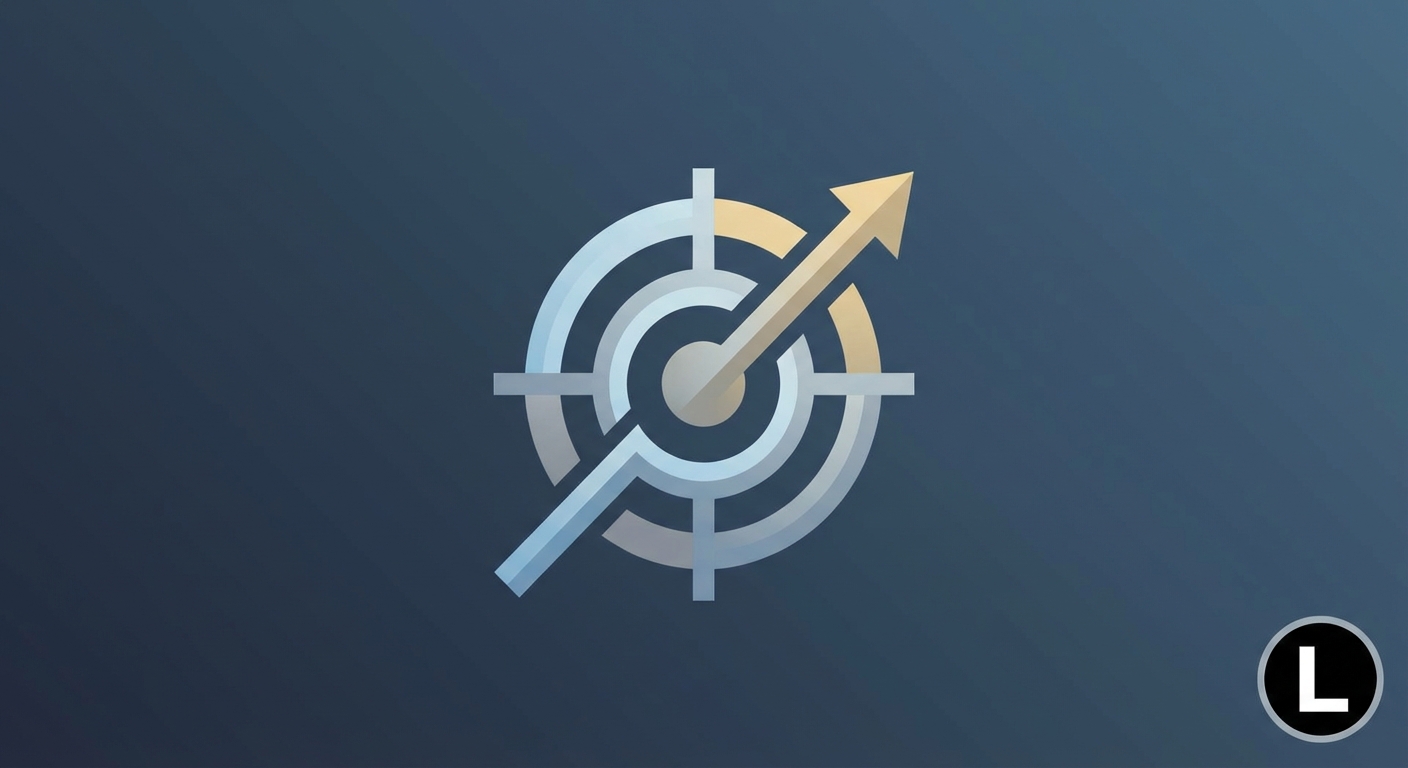Understanding SEO: How It Works
TL;DR
- This article covers the fundamentals of search engine optimization (SEO) and explains how it helps websites rank higher in search results. It includes key ranking factors, on-page and off-page optimization techniques, and the role of ai in modern seo strategies. You'll also learn how to use free online tools for website analysis and improve your site's performance, security, and accessibility, so stick around!
What is SEO and Why Does It Matter?
Okay, let's dive into SEO. Ever wondered why some websites magically appear at the top of Google while others languish in the digital abyss? It's all about Search Engine Optimization, or seo.
seo is essentially the art and science of making your website more visible to search engines. Think of it as whispering sweet nothings into Google's ear, so it knows exactly what your site is about.
- It's about improving your website so it shows up higher in search results when people look for stuff related to your business.
- seo focuses on organic results, the unpaid listings that appear below the ads.
- Understanding how search engines work, what people search for, and then tweaking your site to match that is key.
Because—let's be honest—who clicks past the first page of Google? It's like saying, "Yeah, I'll just walk to the next town over" nobody got time for that.
- seo is like a magnet for qualified traffic. People who find you organically are actively looking for what you offer.
- Better rankings = more eyeballs on your brand, boosting your credibility.
- Good seo also improves the user experience, making your site easier to navigate and understand.
As Mihai-Alexandru Cristea points out, a quality website is essential for your business. So it makes sense to invest in seo if you want to be found.
Now, let's talk about how this all translates into real-world benefits.
Real-World Benefits of SEO
So, why bother with all this SEO stuff? Well, it’s not just about looking good on Google, it actually makes a real difference for your business.
- Increased Revenue: When more people find your website because it’s ranking higher, that means more potential customers. More customers usually means more sales, and that’s more money in your pocket. It’s pretty straightforward, really.
- Better Brand Awareness: Showing up at the top of search results makes your brand look more trustworthy and established. People tend to trust what Google puts front and center. The more they see you, the more they remember you.
- Customer Acquisition: SEO brings in people who are actively searching for what you offer. They’re not just browsing; they have a need or a question, and your website is the answer. This makes them much more likely to become paying customers.
- Improved User Experience: Believe it or not, a lot of SEO work actually makes your website better for visitors. Faster loading times, easier navigation, and clear content all contribute to a better experience, which keeps people on your site longer and makes them more likely to convert.
- Cost-Effectiveness: Compared to paid advertising, organic traffic from SEO can be incredibly cost-effective in the long run. Once you’ve established good rankings, you’re getting consistent traffic without paying for every click.
How Search Engines Work: Crawling, Indexing, and Ranking
Search engines? They're not just some magic box that spits out answers. It's a whole process, kinda like how a bee makes honey.
Crawling is how search engines find content. Think of it as sending out digital spiders to explore the web, following links from page to page. A robots.txt file tells these crawlers where they are, and aren't, allowed to go; like a "keep out" sign for bots. It's important for SEO because it helps control which parts of your site search engines can access and index, preventing them from wasting resources on pages you don't want them to see, like duplicate content or admin areas.
Indexing is where the search engine stores and organizes all that information. It's like a massive library, where each page is categorized and analyzed. They're figuring out what each page means, not just what words are on it.
Ranking is how search engines decide what to show you when you search. The algorithms consider hundreds of factors to provide the most relevant results. The goal is? Give you the best stuff first, duh.
It's all about making sure the right stuff shows up, and that's how seo comes in.
Key Ranking Factors in SEO
Technical seo? It's like the behind-the-scenes crew making sure the stage is set for the main performance. If the tech stuff is off, ain't nobody gonna see your masterpiece.
Website speed is crucial. Google's not gonna reward slow sites and users ain't got all day either. Gotta optimize those images and leverage browser caching, you know? Browser caching is when your website stores files like images and code on a user's computer. The next time they visit, their browser can load those files from their own computer instead of downloading them again, making your site load much faster.
Mobile-friendliness ain't optional no more. Most searches happen on phones, so your site needs to look good on any device. Responsive design is the way to go.
Site architecture? Think of it as a well-organized filing system. Clear navigation and internal linking help search engines (and users) find what they need.
While technical SEO lays the foundation, on-page optimization is where we directly influence how search engines perceive and rank your content.
On-Page Optimization Techniques
Alright, let's talk about making your website pop, you know? It's not just about throwing keywords around like confetti, it's way more strategic than that.
- First, you gotta figure out what people are actually searching for.
- Then, create killer content around those topics, like Roof Sales Mastery does with their sales training FAQs.
- Don't forget those title tags and meta descriptions; they're your first impression.
Basically, it's about being helpful and relevant. Now that we've covered what you can do on your site, let's look at how to build authority and visibility off-page.
Off-Page Optimization Techniques
Off-page seo, yeah, it's more than just throwing your website out there and hoping for the best. It's about building relationships and authority across the web; think of it like networking, but for your website.
- Crafting valuable content is key; it's got to be something other sites want to link to.
- Guest blogging let's you tap into relevant audiences, like The Online Dominance Blueprint does for plumbing and hvac businesses.
- Participating in online communities, it gets your name out there and builds trust.
Social media isn't just for sharing memes, it drives traffic and act as a signal to search engines. You need to create engaging content, build a strong presence, and promote your stuff like crazy.
Ever see a company with a ton of bad reviews? Yeah, not a good look. You gotta monitor those reviews, respond to the bad ones, and, for Pete's sake, encourage happy customers to leave good ones.
All this off-page magic, it sets the stage for even more targeted seo strategies.
The Role of AI in Modern SEO
Ai isn't just a buzzword in seo anymore—it's basically running the show. But how is it changing the game, really? It's doing some pretty cool stuff.
- ai tools are analyzing tons of data to find trending keywords and search habits, that's super helpful. Think about healthcare firms trying to pinpoint what people are searching for when they need medical info.
- ai helps uncover long-tail keywords, it finds hidden opportunities that you might've missed. Like a small retail business targeting niche customer interests to boost visibility.
- ai digs into user intent and content gaps, giving you insight on what people really want when they type something into Google.
It's not just about keywords anymore, it's about understanding your audience, better.
As SEO continues to evolve, artificial intelligence is playing an increasingly significant role in how we approach these strategies.
How AI Enhances Content Creation and Optimization
AI is a game-changer when it comes to making your content shine. It's not about replacing human creativity, but about supercharging it.
- Content Idea Generation: AI tools can analyze trending topics, competitor content, and audience interests to suggest fresh content ideas you might not have thought of. This helps you stay relevant and tap into what people are looking for.
- Keyword Research and Optimization: AI can go beyond basic keyword stuffing. It can help you understand the nuances of search intent, find related keywords, and even suggest how to naturally integrate them into your content for better search engine visibility.
- Content Improvement and Editing: AI-powered tools can check for grammar, spelling, readability, and even suggest ways to make your content more engaging and persuasive. They can help you refine your message and ensure it resonates with your target audience.
- Personalization: AI can help tailor content experiences for different user segments, showing them the most relevant information based on their past behavior or interests. This leads to higher engagement and better conversion rates.
Free Online Tools for Web Analysis
Alright, so you want some free tools to peek under the hood of your website, huh? Luckily, the web's full of 'em. It's like a mechanic having a whole rack of wrenches—but, y'know, for your website and without the grease.
- Google Search Console is like your site's health dashboard; it shows you what keywords Google sees you ranking for, any crawl errors, and so on. Think of it as a free way to get insights without needing a fancy paid subscription.
- PageSpeed Insights can tell you why your site loads at a snail's pace... or not. It'll give you tips to speed things up. Nobody likes waiting around, and Google hates slow sites, too.
- Want to know if your site's got security holes? Tools like SSL Labs are there to check your SSL setup. It's like having a digital security guard.
While AI offers powerful insights, there are also many free tools available to help you analyze your website's performance.
SEO Best Practices for Website Performance, Security, and Accessibility
Alright, let's talk about keeping your site humming, safe, and accessible. You don't want to be that company with a slow, insecure, or unusable website, right? Trust me, ain't nobody got time for that.
Optimizing images is a big win. Compress those babies and use the right formats (jpg, png, webp), so they don't hog bandwidth.
Leverage browser caching: This tells browsers to store static website files (like images and CSS) locally on a user's device, so they don't have to download them every single time they visit, significantly speeding up page load times for returning visitors.
Minify CSS and JavaScript: Shave off those extra bytes by removing unnecessary characters from your code. Minification removes whitespace, comments, and other non-essential characters from code to reduce file size.
HTTPS is non-negotiable. Encrypt that communication!
Keep software updated: Your cms, plugins, themes—everything.
Use strong passwords: Seriously. And maybe a web application firewall (waf) to boot.
Semantic HTML: Use the right tags (
<article>,<nav>,<aside>) to structure your content. For example:<article> <header> <h1>Article Title</h1> </header> <p>This is the main content of the article.</p> </article>Alt text for images: Help out those with visual impairments.
Color contrast: Make sure your text is readable, for crying out loud! Good color contrast improves readability for users with visual impairments and contributes to an overall better user experience, which search engines favor.
Once you have a good understanding of your website's performance through these tools, it's essential to implement best practices to ensure it's optimized, secure, and accessible.
Staying Up-to-Date with SEO Trends
SEO's not a set-it-and-forget-it thing, ya know? It's more like a Tamagotchi pet, you gotta keep feeding it and payin' attention or it'll "die" on ya. So how do you keep up?
- Subscribe to industry blogs like Search Engine Land or Moz. They're always droppin' knowledge on the latest algorithm updates.
- Follow seo experts on Twitter. Rand Fishkin and Barry Schwartz are good ones to start with. They are always sharing insights and sparking discussions.
- Attend webinars and conferences. Even virtual ones can help you network and learn straight from the source.
Don't just take advice as gospel, though. Gotta experiment: -Try new techniques and strategies on a small scale first. See what works for your audience. -Analyze the results like a hawk! Use Google Analytics to see what's movin' the needle. -Adapt to changes in search engine algorithms, because they will change.
Implementing these best practices is crucial, but the SEO landscape is constantly changing, so staying up-to-date with the latest trends is equally important. Staying on top of seo it's a marathon, not a sprint, honestly. And with ai changing so fast, it's now more important than ever.





